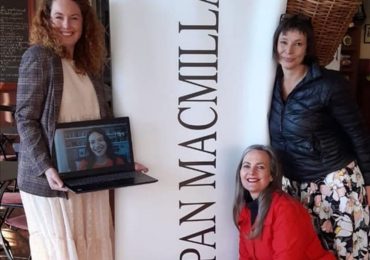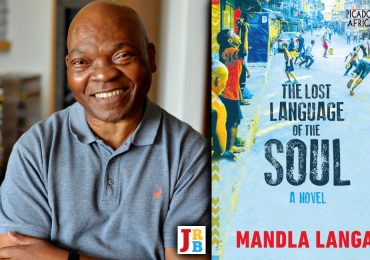From Pan Macmillan South Africa:
In this seminal moment, remaining silent and neutral on these matters of representation and commitment to change is not an option.
25 June 2020
The world over people are thinking about the status quo and how it does or does not serve us as a collective. The publishing industry is no exception and we fall short in many ways. In this seminal moment, remaining silent and neutral on these matters of representation and commitment to change is not an option. At Pan Macmillan SA we feel it is important for us to make our position clear and be proactive in doing so. It shows that these are things we too are concerned about and are grappling with. Sharing our thinking allows us to work through these issues with others, to be accountable for our part and to engage meaningfully in discussion and solutions that help to build a more cohesive industry and society that serves us all in South Africa. We have asked three questions of ourselves that need to be answered in order to continue with our efforts to bring about change.
(1) What is Pan Macmillan SA actively doing to ensure that black authors are published?
We have three priorities in our local publishing division: (1) remain commercially viable; (2) publish excellent works by local authors; and (3) publish the voices and stories that readers want to read. We are committed to publishing new books by black authors who have published with us or elsewhere before and to providing a publishing platform for new voices with important worlds to share and stories to tell. We recognise that we need to do more to develop a more representative range of new authors.
(2) What is Pan Macmillan SA actively doing to develop black talent within the publishing industry?
The face of the local publishing industry and its output is not going to become more representative without actively helping to develop black authors and black editorial staff. We are continually working to widen our efforts in this regard, including: sponsoring a creative writing scholarship at Wits; partnering with a platform such as Gamaphile to help support the development of new writers; and running an annual open submission period that aims to identify and help develop the new ‘brand’ authors of the future. In addition, while we work within our local publishing team and with black freelancers across the publishing process, we recognise that this is an area in which we must urgently do more.
(3) How is Pan Macmillan SA approaching the work of black authors we publish?
It is not enough simply to publish black authors. All authors must receive advice and support throughout the writing and editing process and their voices should be closely listened to in terms of their expectations and experiences. The books should be world class in appearance and content, and they should be widely publicised and available.
A final question points to the broader publishing ecosystem. What ‘external’ aspects of the publishing environment need to change in order to promote books by South African authors?
We think three areas need to change: (1) booksellers should continue to expand their support of local authors and publishers; (2) readers need to buy more local authors – sales of between 500 and 1 000 copies for a debut fiction author are not commercially sustainable for either the publisher or the author; and (3) government needs to provide active support of the arts and culture space and related endeavours.
Pan Macmillan SA will continue to listen to those voices that seek to transform the South African publishing industry, and will follow and meaningfully engage in discussions on how we can do better as a company and as an industry.
—
Ends





